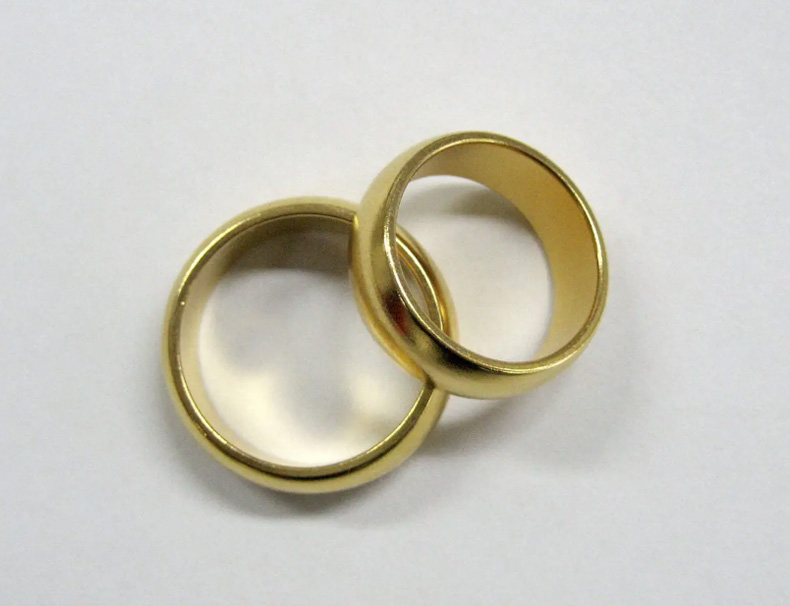In the previous article, I have introduced magnets can be punched, you can see a lot of various sizes and shapes of magnets with holes in our website, but I do not recommend individuals to drill holes for magnets, because of the high risk and very easy to fail.
Easily cracked or broken
Magnets, especially powerful ones of the type like neodymium-iron-boron (NdFeB), are usually very brittle. They are sintered from metal powder and therefore have ceramic-like properties. This means that they tend to break or shatter on impact. When punching holes in the magnet, the pressure exerted by the drill bit may initiate cracks or even cause the magnet to shatter. This brittleness makes it necessary to take extra care when working with them, often requiring the use of specialized tools and techniques to reduce the risk of cracking.
Gold-plated Neodymium Ring Magnets

Magnetic loss
The magnetic properties of a magnet are determined by the internal atomic structure. The high temperatures and mechanical stresses generated during the drilling process may disturb these atomic structures, leading to a reduction in magnetic properties or even complete failure. Especially in NdFeB magnets, high temperatures can cause a decrease in their coercivity (resistance to demagnetization). If the temperature during the punching process is too high, the magnet may partially or completely lose its magnetic properties.
Weakening of the magnet's structural strength
Perforation may weaken the structural strength of the magnet, especially noticeable for small or thin magnets.
Safety risk
Magnet fragments generated during the drilling process can be highly magnetic and can easily attach to the drill or tool, creating dangerous splatter that can fly off and cause injury to the operator.
While it may be necessary to punch holes in magnets in some applications, this should usually be taken into account at the design stage and not be done on the finished magnet. If it does become necessary to punch holes in the magnet, it is recommended that this be done by a professional using the appropriate tools and techniques to minimize negative impacts.
Common perforated magnets
More magnet punching knowledge;
Can rare earth neodymium magnets be drilled hole or cut?
Frequently asked questions and answers about magnets with holes
What are the differences between round magnet with hole and without hole?
 China Neodymium And Ferrite Magnets Manufacturer & Supplier
China Neodymium And Ferrite Magnets Manufacturer & Supplier 


